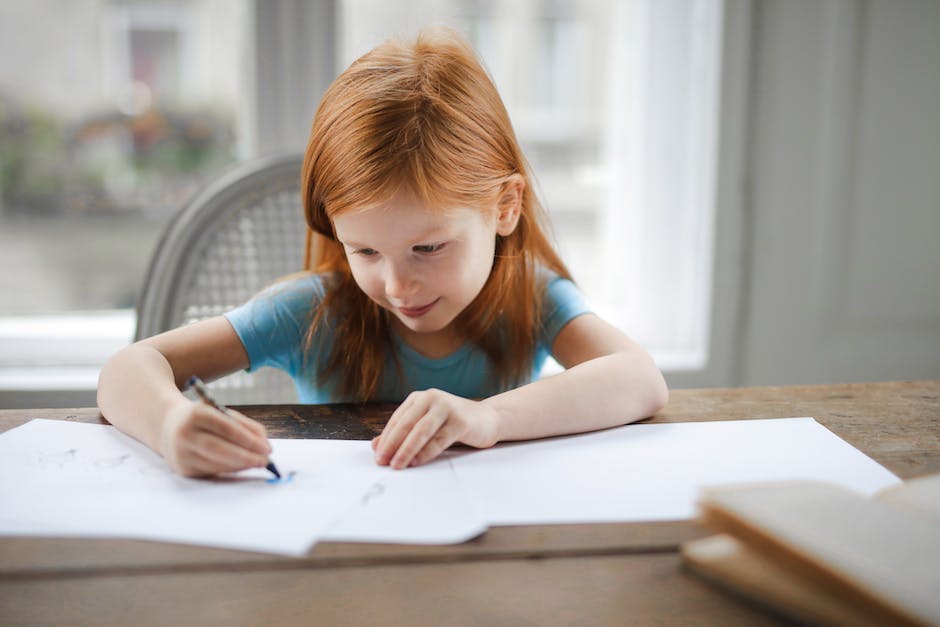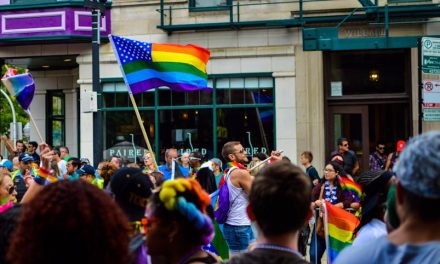Table of Contents
- Introduction
- The Importance of Education in Empowering Girls: Malala Yousafzai’s Story
- Overcoming Adversity: Malala Yousafzai’s Journey to Empowerment Through Education
- Promoting Gender Equality Through Education: Malala Yousafzai’s Advocacy
- Inspiring Change: Malala Yousafzai’s Impact on Education and Empowerment
- Q&A
- Conclusion
Empowering Through Education: Malala Yousafzai’s Fight for Girls’ Right to Learn
Introduction
Empowering Through Education: Malala Yousafzai’s Fight for Girls’ Right to Learn
Malala Yousafzai, a Pakistani activist, has become a global symbol of courage and determination in the fight for girls’ right to education. Born on July 12, 1997, in the Swat Valley of Pakistan, Malala grew up in a society where the Taliban had imposed strict restrictions on girls’ education. Despite facing numerous threats and a near-fatal attack, Malala has dedicated her life to advocating for equal educational opportunities for all children, especially girls. Her unwavering commitment to education has inspired millions around the world and has made her the youngest-ever Nobel Prize laureate. This introduction explores Malala Yousafzai’s remarkable journey and her ongoing efforts to empower girls through education.
The Importance of Education in Empowering Girls: Malala Yousafzai’s Story

Empowering Through Education: Malala Yousafzai’s Fight for Girls’ Right to Learn
Education is a fundamental human right that has the power to transform lives and empower individuals. It is through education that people gain knowledge, skills, and confidence to pursue their dreams and contribute to society. Unfortunately, not everyone has equal access to education, especially girls in many parts of the world. Malala Yousafzai, a young Pakistani activist, has become a symbol of hope and inspiration in the fight for girls’ right to learn.
Malala’s story is one of resilience and determination. Growing up in the Swat Valley in Pakistan, she witnessed the Taliban’s rise to power and their oppressive rule, which included banning girls from attending school. Despite the risks, Malala spoke out against the Taliban’s actions and advocated for girls’ education. Her activism gained international attention, but it also made her a target. In 2012, at the age of 15, Malala was shot in the head by a Taliban gunman while on her way home from school.
The attack on Malala only fueled her determination to fight for girls’ right to education. She survived the assassination attempt and became even more vocal in her advocacy. Malala’s story resonated with people around the world, and she quickly became a global symbol of courage and resilience. In 2014, at the age of 17, she became the youngest-ever recipient of the Nobel Peace Prize for her work in promoting education for all.
Malala’s fight for girls’ education is rooted in the belief that education is the key to breaking the cycle of poverty and discrimination. She understands that when girls are denied an education, they are more likely to face early marriage, limited job opportunities, and a lifetime of dependence. On the other hand, when girls are educated, they are more likely to marry later, have healthier families, and contribute to their communities and economies.
The importance of education in empowering girls cannot be overstated. Education provides girls with the knowledge and skills they need to make informed decisions about their lives. It gives them the confidence to speak up and advocate for their rights. It opens doors to opportunities and allows them to pursue their passions and dreams. Education also plays a crucial role in breaking down gender stereotypes and promoting gender equality.
Malala’s story serves as a powerful reminder that education is not just a privilege but a basic human right. It is a tool that can be used to empower individuals and transform societies. By advocating for girls’ education, Malala has shown that one person can make a difference and inspire change. Her courage and determination have inspired millions of people around the world to stand up for what they believe in and fight for justice and equality.
In conclusion, Malala Yousafzai’s fight for girls’ right to learn is a testament to the power of education in empowering individuals and transforming societies. Her story serves as a reminder that education is a fundamental human right that should be accessible to all, regardless of gender. By advocating for girls’ education, Malala has become a global symbol of courage and resilience. Her activism has inspired millions of people to join the fight for justice and equality. Education is not just a means to acquire knowledge; it is a tool that can change lives and create a better future for all.
Overcoming Adversity: Malala Yousafzai’s Journey to Empowerment Through Education
Empowering Through Education: Malala Yousafzai’s Fight for Girls’ Right to Learn
Malala Yousafzai, a young Pakistani activist, has become a symbol of courage and resilience in the fight for girls’ education. Her journey to empowerment through education is a testament to the power of determination and the importance of education in transforming lives.
Born on July 12, 1997, in Mingora, a small town in the Swat Valley of Pakistan, Malala grew up in a society where girls’ education was often discouraged. However, her father, Ziauddin Yousafzai, a passionate advocate for education himself, instilled in her a love for learning and a belief in the power of education to bring about change.
Malala’s journey to empowerment began at a young age when she started speaking out against the Taliban’s ban on girls’ education in her hometown. In 2009, at the age of 11, she started writing a blog for the BBC under a pseudonym, detailing her experiences and advocating for girls’ right to learn. Her blog gained international attention, and she soon became a prominent voice for girls’ education in Pakistan.
However, Malala’s activism did not go unnoticed by the Taliban. On October 9, 2012, as she was returning home from school, a masked gunman boarded her school bus and shot her in the head. The attack left her critically injured and fighting for her life. Her story made headlines around the world, and people from all walks of life rallied behind her, demanding justice and supporting her cause.
Miraculously, Malala survived the attack and was airlifted to the United Kingdom for medical treatment. Her recovery was long and arduous, but her determination to continue her fight for girls’ education remained unwavering. In 2013, on her 16th birthday, she delivered a powerful speech at the United Nations, calling for universal access to education and inspiring millions with her courage and resilience.
Malala’s advocacy for girls’ education has not been limited to Pakistan. She has traveled the world, meeting with world leaders, speaking at conferences, and raising awareness about the importance of education for all children, regardless of their gender. In 2014, she became the youngest-ever recipient of the Nobel Peace Prize, further cementing her status as a global icon for education and empowerment.
Through her Malala Fund, established in 2013, Malala continues to work tirelessly to ensure that every girl has access to quality education. The fund supports education projects in countries like Pakistan, Nigeria, and Syria, providing scholarships, building schools, and advocating for policy changes to promote girls’ education.
Malala’s journey to empowerment through education is a powerful reminder of the transformative power of education. She has shown that even in the face of adversity, one person can make a difference and inspire change. Her story serves as a beacon of hope for millions of girls around the world who are denied the right to learn.
In conclusion, Malala Yousafzai’s fight for girls’ right to learn is a testament to the power of education in empowering individuals and transforming societies. Her journey from a small town in Pakistan to becoming a global advocate for education is a story of resilience, courage, and determination. Through her activism and the establishment of the Malala Fund, she continues to inspire and empower girls around the world, ensuring that their voices are heard and their right to education is protected.
Promoting Gender Equality Through Education: Malala Yousafzai’s Advocacy
Empowering Through Education: Malala Yousafzai’s Fight for Girls’ Right to Learn
Promoting Gender Equality Through Education: Malala Yousafzai’s Advocacy
Education is a fundamental right that should be accessible to all, regardless of gender. Unfortunately, in many parts of the world, girls are denied this basic right. Malala Yousafzai, a Pakistani activist, has dedicated her life to fighting for girls’ right to education. Through her advocacy work, she has become a symbol of hope and empowerment for millions of girls around the world.
Malala’s journey began in the Swat Valley of Pakistan, where she was born in 1997. Growing up in a region plagued by Taliban insurgency, she witnessed firsthand the devastating impact of their oppressive rule on girls’ education. The Taliban believed that girls should not receive an education and actively targeted schools and students. Undeterred by the threats, Malala continued to attend school and speak out against the injustices she and her peers faced.
In 2009, at the tender age of 11, Malala started writing a blog for the BBC Urdu under a pseudonym, detailing her experiences and advocating for girls’ education. Her powerful words resonated with people around the world, and she quickly gained international recognition for her bravery and determination. However, her growing prominence also made her a target for the Taliban.
Tragedy struck on October 9, 2012, when Malala was shot in the head by a Taliban gunman while riding a bus home from school. The attack was an attempt to silence her and discourage others from speaking out. However, it had the opposite effect. Malala’s story captured the world’s attention, and people from all walks of life rallied behind her cause.
Following her recovery, Malala became even more determined to fight for girls’ right to education. In 2013, she co-authored a memoir, “I Am Malala,” which further amplified her message and shed light on the challenges faced by girls in accessing education. The book became an international bestseller and solidified Malala’s status as a global advocate for girls’ education.
Malala’s advocacy work has taken her to numerous countries, where she has met with world leaders, spoken at the United Nations, and established the Malala Fund. The Malala Fund is a non-profit organization that advocates for girls’ education and invests in local education initiatives. Through the fund, Malala has supported projects in countries like Pakistan, Nigeria, and Syria, providing girls with access to quality education and empowering them to break the cycle of poverty.
Malala’s impact extends beyond her advocacy work. In 2014, she became the youngest-ever recipient of the Nobel Peace Prize, at the age of 17. This prestigious award not only recognized her courage and resilience but also brought global attention to the issue of girls’ education. Malala’s voice has become a powerful force for change, inspiring individuals and governments alike to take action.
In conclusion, Malala Yousafzai’s fight for girls’ right to learn has been a beacon of hope in the quest for gender equality. Through her advocacy work, she has shed light on the barriers that girls face in accessing education and has inspired millions to join the fight. Malala’s unwavering determination and resilience serve as a reminder that education is not just a privilege but a fundamental right that should be accessible to all. As we continue to work towards a more equitable world, let us draw inspiration from Malala’s courage and commitment to empowering girls through education.
Inspiring Change: Malala Yousafzai’s Impact on Education and Empowerment
Empowering Through Education: Malala Yousafzai’s Fight for Girls’ Right to Learn
Malala Yousafzai, a young Pakistani activist, has become a symbol of hope and inspiration for millions around the world. Her unwavering commitment to girls’ education and her fearless advocacy for women’s rights have made her a powerful force for change. Through her remarkable journey, Malala has not only transformed the lives of countless girls but has also challenged societal norms and shattered barriers that hindered progress in education and empowerment.
Born on July 12, 1997, in Mingora, Pakistan, Malala grew up in a region where the Taliban had a stronghold. Despite the oppressive environment, her father, Ziauddin Yousafzai, a passionate education activist himself, instilled in her a deep love for learning and a belief in the power of education to bring about positive change. Malala’s early experiences of attending school and witnessing the denial of education to girls in her community ignited a fire within her to fight for the rights of girls to learn.
In 2009, when Malala was just 11 years old, she began writing a blog under a pseudonym for the BBC Urdu service. In her blog, she chronicled her experiences living under Taliban rule and her determination to continue her education despite the threats and violence. Her powerful words resonated with people around the world, and she quickly gained international recognition for her bravery and resilience.
However, Malala’s activism did not go unnoticed by the Taliban. On October 9, 2012, as she was returning home from school, a masked gunman boarded her school bus and shot her in the head. The attack was an attempt to silence her and discourage others from speaking out against the Taliban’s oppressive regime. But instead of succumbing to fear, Malala’s spirit only grew stronger.
Following the attack, Malala was airlifted to the United Kingdom for medical treatment. Her miraculous recovery and unwavering determination to continue her fight for girls’ education propelled her into the global spotlight. In 2013, at the age of 16, she delivered a powerful speech at the United Nations, calling for universal access to education and declaring that “one child, one teacher, one book, and one pen can change the world.”
Malala’s advocacy work has since expanded beyond Pakistan. She co-founded the Malala Fund, a nonprofit organization that advocates for girls’ education and empowers young girls to raise their voices and demand their rights. Through the fund, Malala has supported projects in countries like Nigeria, Jordan, and Kenya, providing educational opportunities to girls who would otherwise be denied an education.
Malala’s impact on education and empowerment cannot be overstated. Her courage and determination have inspired millions of girls to pursue their dreams and fight for their rights. She has shown the world that education is not just a privilege but a fundamental human right that should be accessible to all, regardless of gender or social status.
In recognition of her extraordinary efforts, Malala was awarded the Nobel Peace Prize in 2014, becoming the youngest-ever recipient of the prestigious award. This accolade further amplified her message and solidified her position as a global advocate for education and empowerment.
Malala Yousafzai’s fight for girls’ right to learn has sparked a global movement for change. Her story serves as a reminder that even in the face of adversity, one person’s voice can make a difference. Through her unwavering commitment to education and empowerment, Malala has become a beacon of hope, inspiring generations to come to stand up for what they believe in and work towards a more inclusive and equitable world.
Q&A
1. Who is Malala Yousafzai?
Malala Yousafzai is a Pakistani activist for female education and the youngest Nobel Prize laureate.
2. What is Malala Yousafzai known for?
Malala Yousafzai is known for her advocacy for girls’ right to education, especially in regions where it is restricted or denied.
3. Why is education important to Malala Yousafzai?
Malala Yousafzai believes that education is a fundamental right for all children, regardless of their gender, and that it is crucial for empowering individuals and communities.
4. What impact has Malala Yousafzai made in the fight for girls’ education?
Malala Yousafzai’s activism has brought global attention to the issue of girls’ education, inspiring many to take action and leading to increased efforts to ensure access to education for girls worldwide.
Conclusion
In conclusion, Malala Yousafzai’s fight for girls’ right to learn has been a powerful example of empowerment through education. Her advocacy and activism have shed light on the importance of education for girls, particularly in regions where they face significant barriers. Through her courage and determination, Malala has inspired countless individuals and organizations to take action and work towards ensuring equal access to education for all girls around the world. Her efforts have not only empowered girls to pursue their dreams and aspirations but have also highlighted the transformative power of education in breaking cycles of poverty and discrimination. Malala Yousafzai’s fight continues to serve as a reminder that education is a fundamental right that should be accessible to every child, regardless of their gender or background.




